Steven Spielbergs dubious history with gaming
Don’t quit your day job, Steve
Please welcome Steven Spielberg!
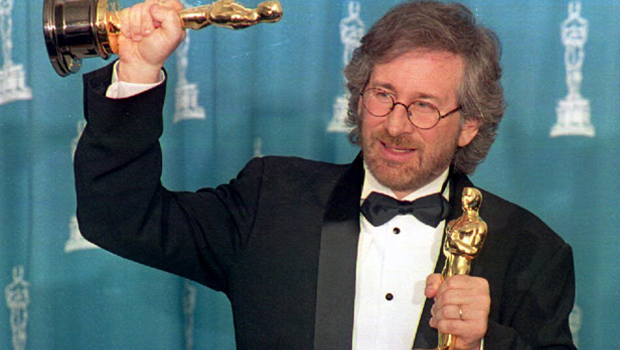
Those four words above mean different things to different people. If youre at the Academy Awards or a film premiere, people immediately applaud to show their respect and gratitude for everything Steven Spielberg has done for cinema over the last 40 years. But if you hear that phrase during E3 or at any media event to reveal a new game, brace yourself for paid spokesman named Steven Spielberg to arrive on stage and talk big but ultimately deliver little.
As a film director, Spielberg is one of the best, and certainly one of the most well-known. That notoriety occasionally causes him to bleed into the world of games, and though his name might be cause for applause at a crowded media event, we feel hes done more harm than good by lending his name to the digital medium he says he enjoys so much. Take a look at these eight instances of Spielbergs approach to gaming and see how excited youll be the next time he takes the stage at E3
His first time was almost the last time
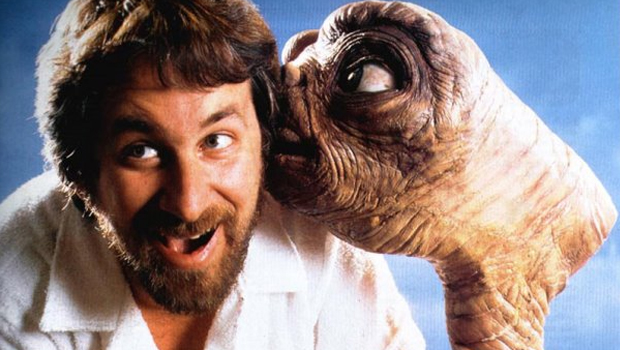
Spielbergs earliest encounter with games happened on the set of Jaws, where he played Pong after hours with Richard Dreyfus. As pleasant as that is to imagine, when Spiels first tried his hand at creating a game, the final title was so poorly received that it very nearly killed the game industry altogether. That game was E.T. the Extra Terestrial, a title technically based on the film of the same name and GRs official worst game of all time.
Not all the blame can be laid on Steven, what with companies continually flooding the market with games almost as awful as E.T., though not in as high a volume. But no matter how uninvolved Spielberg was in the notrious six week development of this travesty, back then the filmmaker made the time to chat about the game on TV. By the sound of it, Spielberg was really impressed with the game plan of having E.T. constantly falling into holes in Ataris big Holiday release. We doubt Steven had as much faith in the game when millions of unsold cartridges were buried in the desert.
Dig it
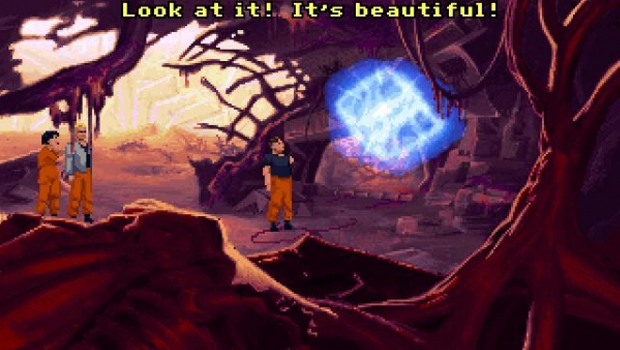
By the late 1980s, Spielbergs influence had extended beyond films and into television, the medium where he created programs like the anthology series Amazing Stories. Much like the Twilight Zone and Outer Limits of Spielbergs youth, each episode told a self-contained story, though one idea of his would prove too expensive for the show. After also failing to get it financed as a film, Spielberg took the concept to his old pal George Lucas and his team at LucasArts. Those developers took the plot of astronauts discovering a lost alien race in a hollow asteroid and turned it into The Dig.
The Dig went through a lengthy five year development that saw staff, including multiple team leaders, exit the project. One of Spielbergs largest contributions to the game was toning down some of Digs more mature themes following complaints that Jurassic Park was way too violent for the kids that ended up seeing it. The resulting point and click adventure game of 1995 was praised for its high production values, but many LucasArts fans didnt appreciate the games more serious tone, instead favoring comedic games like Monkey Island. Afterwards, Spielberg had hoped the game would prove popular enough to spin The Dig off into the film he wanted to make in the first place, but it was not to be.
Back with his directors chair
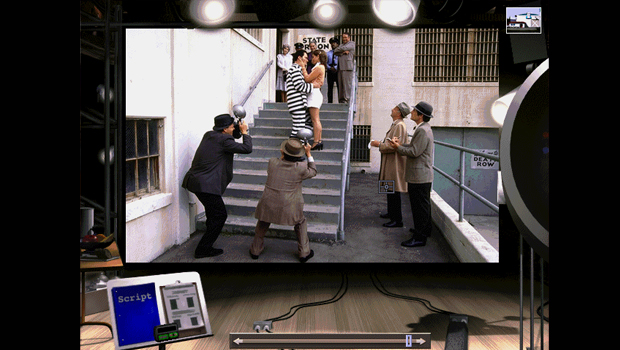
Steven remained behind the scenes of gaming up until his newly established production company DreamWorks wanted to get into the game business. And the devs wanted to make a game that utilized the most cutting edge tech of the era: Full motion video! You have to understand that back then the ability to watch grainy, postage stamp-sized videos on a PC seemed as much sci-fi as Jurassic Park. Steven Spielbergs Directors Chair aimed to give players a feel of what movie production was really like by manipulating FMV into an eventual movie while being visited periodically by Spielberg. If you like unexpected celebrity cameos, heres the trailer.
Sign up to the GamesRadar+ Newsletter
Weekly digests, tales from the communities you love, and more
This type of game couldnt feel more outdated today, and we wonder how much people actually learned about filmmaking from this, but you have to give the production some credit. While you can question how much time Spielberg spent with the developers, stars like Jennifer Aniston and Quentin Tarantino bothered to film goofy, low budget cinematics, which was far better than the community theater troupes staffing most FMV cutscenes. Spielbergs limited blue screen appearances may not have amounted to much, but at least fans got to see Tarantino overact in a prison.
A prized medal of honor
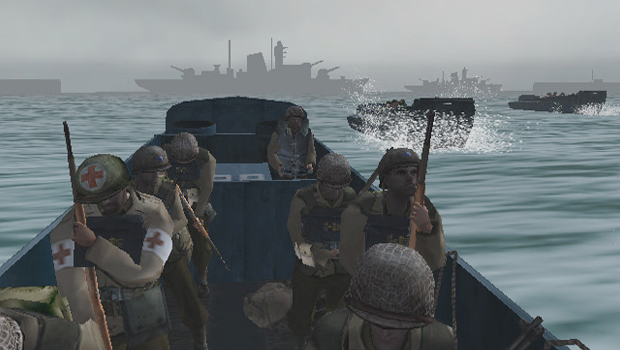
As the 20th century drew to a close, Spielberg really took a shine to the battles of World War II, making films like Saving Private Ryan and TV shows like Band of Brothers. He decided to use his staff at DreamWorks Interactive to further illustrate his love and respect for the soldiers in The Big One by dreaming up Medal of Honor. Steven is credited as creator of the game, but after the first franchise entry, publisher EA took the reins and made it into an annualized series that had fans storming the beaches of Normandy every November.
Though Spielberg had moved on after the original, his starting of the Medal of Honor franchise might be his greatest (if unintended) contribution to gaming. MoH caused an avalanche of WWII games that took the industry years to get out from under. Meanwhile, the franchises most popular entry, Allied Assault, employed a team of developers that eventually would break off from the EA war machine to start the studio Infinity Ward. That team then created Call of Duty for Activision, and the rest is history. Its very possible todays gaming business would be totally different without Spielberg bothering to make a WWII game, but whether the end result is good or bad for gaming is up to debate.
Blox party
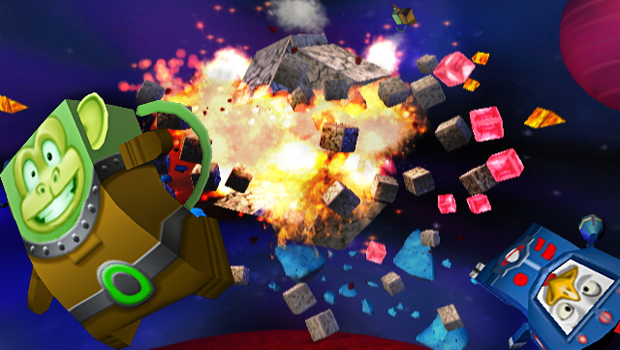
Spielberg may have left Medal of Honor in Electronic Arts trusting hands, but that wasnt the end of his partnership with EA. In 2005, Steven made a deal to produce three games for the company, and he was more than happy to give out dozens of interviews about his ambitious plans, his love of games, and his vision of the future of the medium. But a funny thing happened on the way to GameStop. Only two of those three games came out, and they were hardly what people envision when they hear a game presented by Steven Spielberg.
When Boom Blox hit the Wii in 2008, the family friendly puzzler tasked players with flinging blocky animals to knock down shaky structures using the systems motion controls. The title and its sequel were much better than they were given credit for, but everyones initial reaction was that it wasnt half as ambitious as theyd expected from the Oscar winner. Even if Boom Blox was one of the best Wii games ever, what happened to the really ambitious, yet barely detailed game Spielberg was supposedly working on?
LMNO could have made you cry
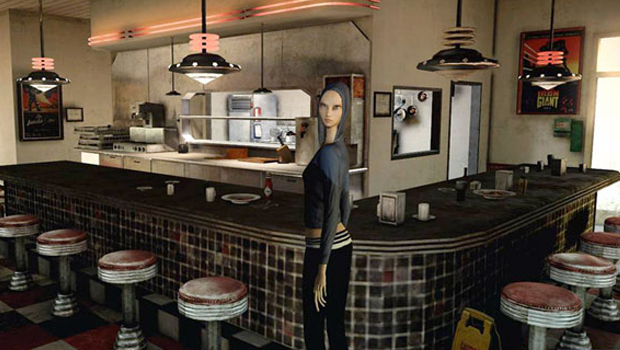
At the start of the 360/PS3/Wii era, EAs Neil Young (not the singer) pondered if a game could ever make you cry. He seemed to find a partner in Steven Spielberg as they planned to make a game with a truly touching story that could play gamers emotions like a violin. The project was codenamed LMNO. At that point Boom Blox was barely even in the planning stages while work started in earnest on the ambitious FPS hybrid of LMNO. The campaign would take you on an adventure with an alien woman Eve, hopefully growing close enough to her to cry if something bad ever happened to her.
For the next five years EA and Spielberg quietly worked on the title, and questions from the press were met with vague replies. Eventually, in 2010, EA announced the game had ceased production without ever being shown to the public. This test footage of LMNO is pretty much all thats left of of Spielbergs fledgling project. To see such a promising game die with a whimper and a press release... it almost brings a tear to your eye.
Project Natal makes you one with gaming
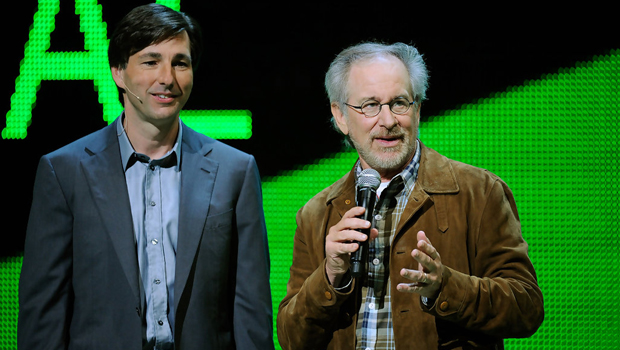
Around when LMNO was dying a slow death and Boom Blox was embraced by the more savvy fans of the Wii, Steven made some new friends in the gaming world. At E3 2009, Microsoft unveiled Project Natal, its answer to the waggle craze that was sweeping the nation. The camera on the machine could seemingly capture your movements so precisely that the barrier of complicated controllers would finally disappear. And Spielberg was there to give the tech his personal stamp of approval.
This was a strange appearance for Spielberg in the gaming sphere, because he had no game to show, just enthusiasm to share about Natal. Spiels felt that Natal was the answer to finally making gaming as approachable as all other forms of entertainment, and that the soon-to-be-renamed Kinect was the missing link to make you one with technology. Stevens words would turn out to be prophetic, as the next four years of Kinect games proved... whats that? Oh, Kinect ended up being fairly unreliable and best used as a drunken party favor. Well, you can hardly blame Spielberg for that, right? He clearly had next to nothing to do with the machine.
Halo becomes the TV show you always wanted
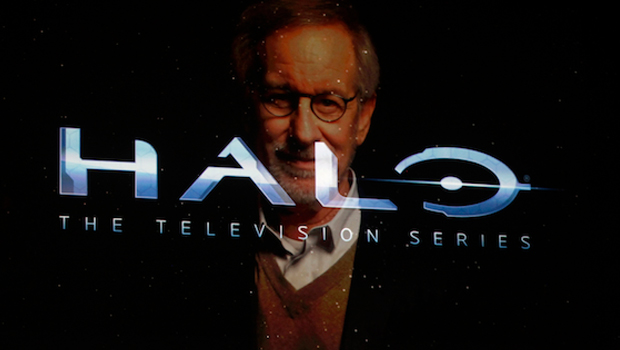
When Microsoft was ready to reveal its next-gen console and Kinect combo, Spielberg was once again included in the festivities. It seemed like hed be limited to the self-congratulatory sizzle reel at the start, but soon the it was evident that TV was king at this press conference, and Spielberg just happened to have a TV show for Xbox fans. Spielberg appeared via satellite to announce that he would be serving as a producer on 343s planned Halo TV series.
Now, that might sound like a big deal, because Spielberg is a legitimately prolific guy when it comes to directing films, and he even produced notable hits like Back to the Future and Gremlins, as well as TV shows as wide-ranging as Tiny Toons and The Pacific. But what has Spielberg done lately as a producer? That would include the recently cancelled Smash and Michael Bays Transformers trash heaps. No matter how involved Spielberg is with Master Chiefs television debut--beyond signing his paychecks from Microsoft--those recent credits are simple reminders that a Spielberg producer title has lost some of its luster.
Lets give Steven a big hand!
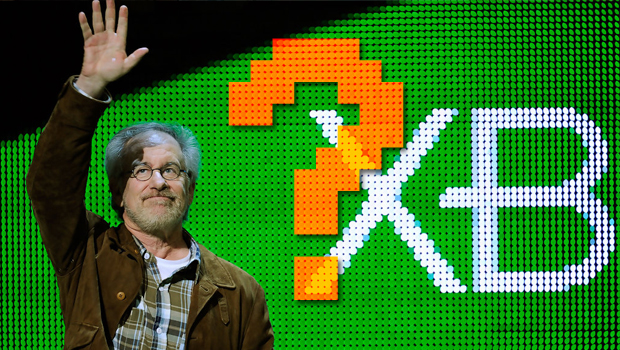
So there you have it, Steven Spielberg many auspicious entries into the gaming space and his quietly disappointing results. Think about these moments the next time Spielberg or any other major filmmaker takes the stage at E3 to discuss their vision for the future of gaming. It all may sound nice and informed, but busy people like them have little time to actually deliver on their big talk. Theyre too busy making movies.
If you're looking for more E3-flavored features, check out E3 Games - Every single game confirmed for 2013 and the Top 7painfully uncomfortable moments from past E3 pressers.
Henry Gilbert is a former GamesRadar+ Editor, having spent seven years at the site helping to navigate our readers through the PS3 and Xbox 360 generation. Henry is now following another passion of his besides video games, working as the producer and podcast cohost of the popular Talking Simpsons and What a Cartoon podcasts.



